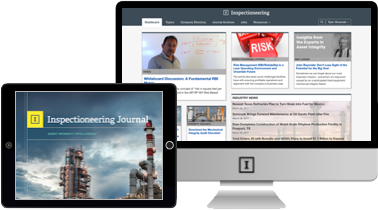Introduction
If you have ever had the pleasure of hearing Mr. Paul Barringer speak about using probability statistics to perform reliability, then you know what kind of visionary he was on the subject. The key phrase that he continually emphasized was “if you are not using statistical probability, then you are not doing reliability.” He was, and still is, right. All facilities produce data. Many of the programs produce their own data beyond what is needed to operate the plant. However, despite the amount of available data that exists, numerous facilities continue to struggle, even after implementing a reliability program. Why do failures continue to occur to even the best reliability programs? Many times, we immediately focus our thoughts on people, process, or technological issues. In reality, the real answer is data. Data is the lifeblood of any maintenance or reliability program and is the basis of decisions, the steward of objectivity, and the driver for sustainability.
The manner by which reliability is achieved is experiencing a much-needed paradigm shift in the way it uses data. In this article, we’ll explain how you can leverage this industry shift in the approach to data to implement data-driven reliability at your facility.
What’s wrong with reliability today?
Before diving into the benefits of data-driven reliability, it’s important to examine its current challenges. A few common reliability challenges that many facilities face today include:
- The inability to quantify the value of maintenance, resulting in qualitative decision making.
- A lack of focus on what drives availability and performance.
- Overconservative analyses based on intuition rather than data, resulting in performing activities that increase costs and do not add value to the program.
- Siloed execution, primarily stemming from the various types of equipment, resulting in most organizations conducting maintenance and reliability work in functional groups separate from each other.

















Comments and Discussion
There are no comments yet.
Add a Comment
Please log in or register to participate in comments and discussions.